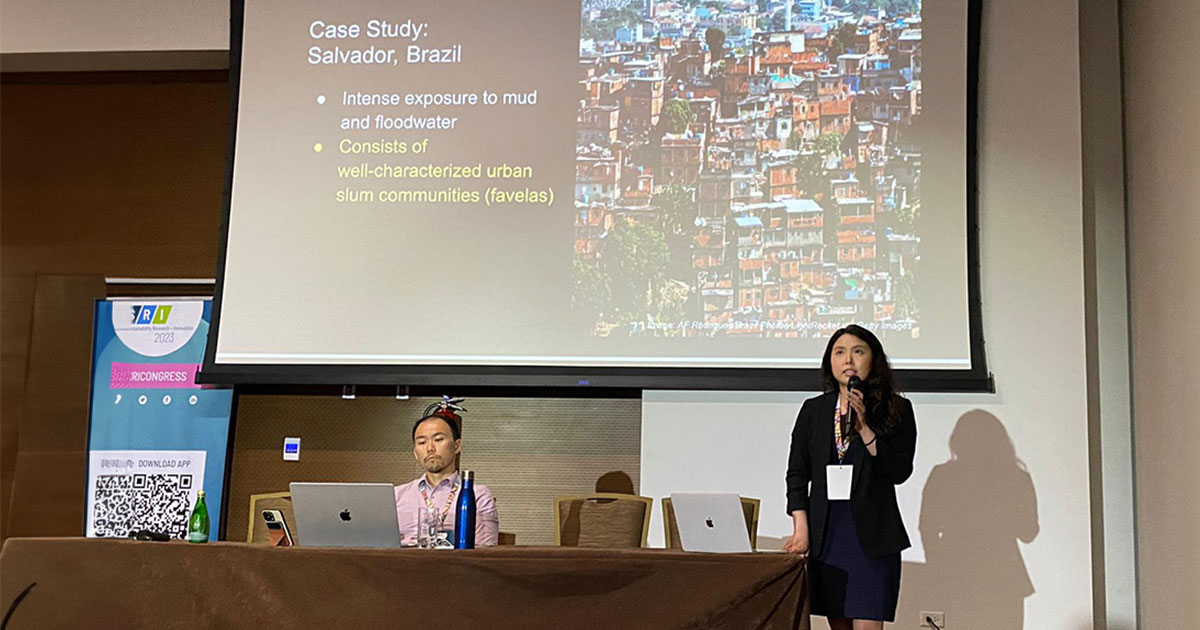Applications Open Nov. 17 for 2024 Global Health Internships
Michelle Vu, a student in Des Moines University’s Doctor of Osteopathic Medicine program, completed an eight-week virtual internship with the United States Global Change Research Program during Summer 2023. She was selected to participate in this internship as part of the Distinguished Global Health Internships program of DMU’s Department of Global Health. These selective internships enable students to collaborate with researchers to explore global health research topics at national organizations.
The application for the university’s Summer 2024 global health internships at the USGCRP and the CDC will open to DMU students Nov. 17, 2023. For more information and how to apply, please visit the Department of Global Health’s Pulse page. If you have any questions, please contact the department at globalhealth@dmu.edu.
Individuals are invited to attend, via Zoom, the DMU Office of Research’s Friday Research Seminar on Nov. 17 at noon, when the 2023 global health interns will present research they produced during their internships. For more information, contact research@dmu.edu.
Here are Michelle’s reflections on the experience.
My eight-week internship with the United States Global Change Research Program was an invaluable experience. It deepened my understanding of the intricate connections between climate change and human health. As I embark on my future career as a physician, this internship has had a deep impact on me.
During the internship, my primary project was with the International Workstream under USGCRP’s Climate Change and Human Health Working Group. The goal of the project was to become a technical expert on a topic of my choice related to climate, environment and health. I also gave a presentation to global transdisciplinary researchers on climate, environment and health. I chose to research the environmental drivers of leptospirosis, a bacterial disease that affects humans and animals, in Latin America and the Caribbean.
I discovered that while existing literature acknowledges the influence of climate factors like rainfall, temperature and land use on global transmission of leptospirosis, further research is needed to understand the most influential environmental factors for the spread of the disease in Latin America and the Caribbean. I hoped that drawing attention to some of these factors would foster future development of targeted interventions, risk mapping and early warning systems for leptospirosis prevention and control in the region.
I presented my findings at the Belmont Forum’s Climate, Environment and Health Collaborative Research Action Workshop during the 2023 Sustainability Research and Innovation Congress in Panama. My project not only underscored the significance of utilizing a transdisciplinary approach to comprehend how climate change impacts human health, but it also honed my skills as a researcher and communicator. Since the project was in collaboration with the Belmont Forum, a multinational partnership focused on mobilizing funding for international environmental change research, I learned about ways different countries and disciplines are coming together to address the challenges of global environmental change.
Attending the SRI Congress in person was an unforgettable experience for me. While it was intimating to present my work to experts in the field, everyone was very encouraging and supportive. I am immensely proud of having identified an important and understudied concern in global health and helping to direct the international research community’s interest to it. When I wasn’t presenting, I had the privilege of attending the conference’s fascinating sessions on climate and health. I was deeply inspired by the current actions that researchers from around the world are doing to combat global environmental challenges.

With the time in my internship after the SRI Congress, I explored other areas in the realm of climate and health. I participated in a vibriosis indicators case study with the Climate Change, Food Systems and Nutrition Security Workstream under the Climate Change and Human Health Working Group. I also had the privilege of meeting with a physician in the Climate and Health Science Policy Fellowship at the University of Colorado School of Medicine to learn how other physicians are addressing the impacts of climate change on health in their health care settings. Our conversation further inspired me to continue to explore the relationship between climate change and human health as a future physician.
For students considering DMU’s global health internship with the USGCRP, I wholeheartedly encourage them to apply and fully immerse themselves in the projects while actively engaging with their teams. This internship offers a unique chance to collaborate with leading experts in climate and health research and to expand one’s knowledge of how climate change influences human health. I found that a proactive and curious mindset was essential to getting the most out of my experiences at the internship.
I am deeply grateful to the USGCRP and the DMU Department of Global Health for giving me the opportunity to experience this firsthand view of how global change research is advanced and coordinated throughout the federal government and through international collaboration. The projects, the people I have worked with and the knowledge I gained in those eight weeks have profoundly shaped my perspective on climate change and its far-reaching consequences, particularly on human health. The lessons I learned and experiences I gained during this internship will be invaluable to me throughout my personal and professional journey in medicine. I hope to share this knowledge with everyone I encounter, particularly my peers and future patients.


